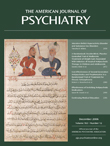This was a story waiting to be told; a previously-unheralded figure in the French Enlightenment, a woman scientist, more talented than her 10-year on-and-off lover Francois-Marie Arouet, has affairs with Richelieu and de Sade, makes astounding discoveries leading to the formula E=mc 2 and photography, has great bodice-ripping novelesque experiences, including a sword-fight, and winds up dying in child birth. The book’s title, Passionate Minds, is terribly tempting, but the subtitle on Amazon.com is socko— The Great Love Affair of the Enlightenment, Featuring the Scientist Emilie du Châtelet, . . . , Sword Fights, Book Burnings, Assorted Kings— and is much better than the real one, The Great Enlightenment Love Affair .
Who wouldn’t want to read it? Brilliance, beauty, passion, intrigue. Come in, John, you’re hiding something. Well, yes. As most of you already know, of course, Francois-Marie Arouet, the poet, dramaturge, pot-boiler, agit-propiste, etc., is none-other than Voltaire. And Richelieu was not the Cardinal but his nephew and De Sade not the Marquis but his uncle, but never matter, the preface makes for great reading. But then, also of course, as any of us who have written a book know, after the preface, there’s the rest of the book to write and to carry off a zany yet serious tale, an odd yet scholarly biography, a quirky yet straight work, one has to provide a lot of meat in an appealing manner.
And here dear reader is where Bodanis gets in trouble. For after I finished the dazzling preface, I tried to read the book and indeed got up to page 137 (of 232 pages of text) before I went into my “Evelyn Wood” mode, zipping through the pages until I found something interesting, at which point I would shift gears to read more slowly. Then at the end of the evening, I set the book down beside my chair. My wife, who devours books about either women or France as passionately as I do reviews on Paris bistrots, scooped it up, and I didn’t see it again for a week. She loved it, and while it was in her hands, I realized I didn’t want it back because then I’d be forced to finish it, reading more slowly and writing this review, and I wanted to do neither.
Why? Why did we have such different responses to the same tale? My perceptive wife said she knew why; it was because I hold all authors to a Booker standard rather than a Pulitzer one, whereas she can override an author’s obvious flaws to learn about two individuals she never would have gotten to know otherwise. My response was that it was so badly written and sloppily edited that I didn’t want to learn more about either. At this point in electronic publishing, it’s easy enough to find all the “whichs” that should be “thats,” the “theirs” that should be “his or hers,” and the “betweens” that should be “amongs,” but no one seems to have cared. In addition, I found the writing turgid and ponderous, and since Bodanis is American by birth, French by inclination, and British by occupation, no translator can be blamed for the style. Finally, the book was full of uninteresting details, padded-up minutiae and nontitillating fluff.
Francois Simon, arguably France’s greatest contemporary writer on food (note that I didn’t say restaurant critic, a descriptor he rejects), asks at the end of his often impenetrable reviews in Figaroscope, “Should one go?” And he usually answers clearly for the first time in 500 words—yes, no, or maybe if you live nearby. So I think I’ll put the same question to myself here—and the answer is clear—yes, if you’re like my wife who thinks that a fascinating story about two people who you never would have known much about trumps bad writing, but no, if you’re like me and the writing and grammar interfere with your enjoyment.

